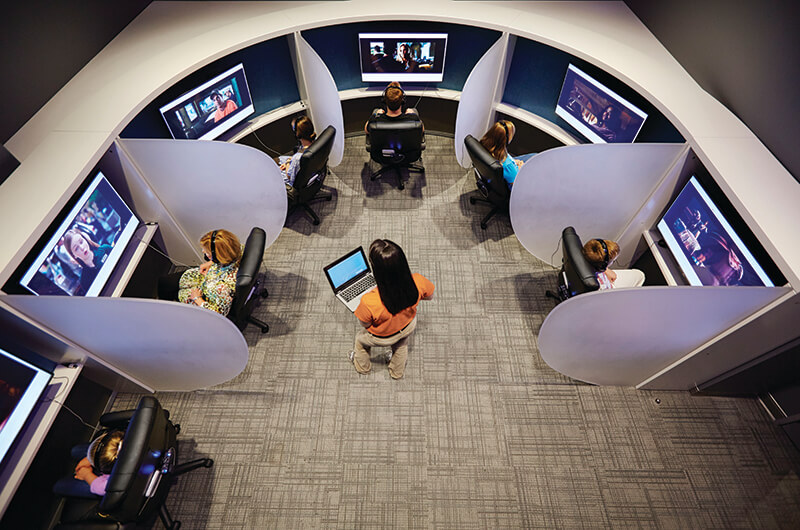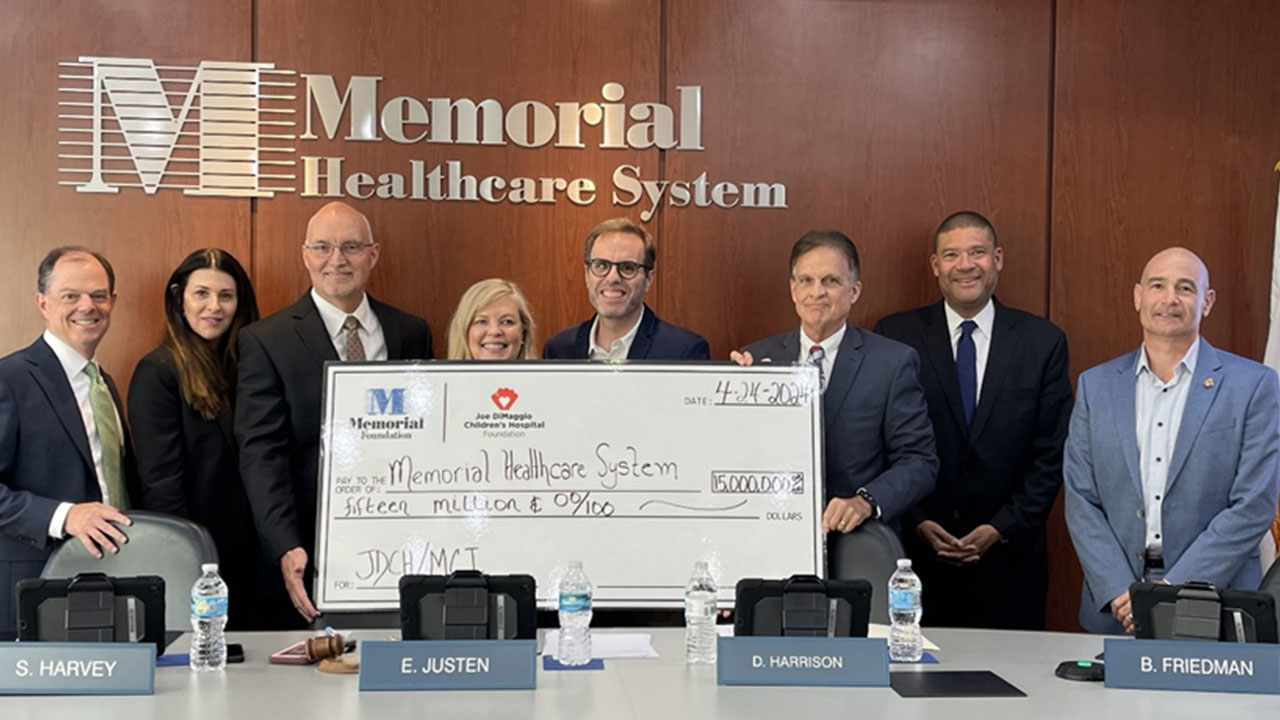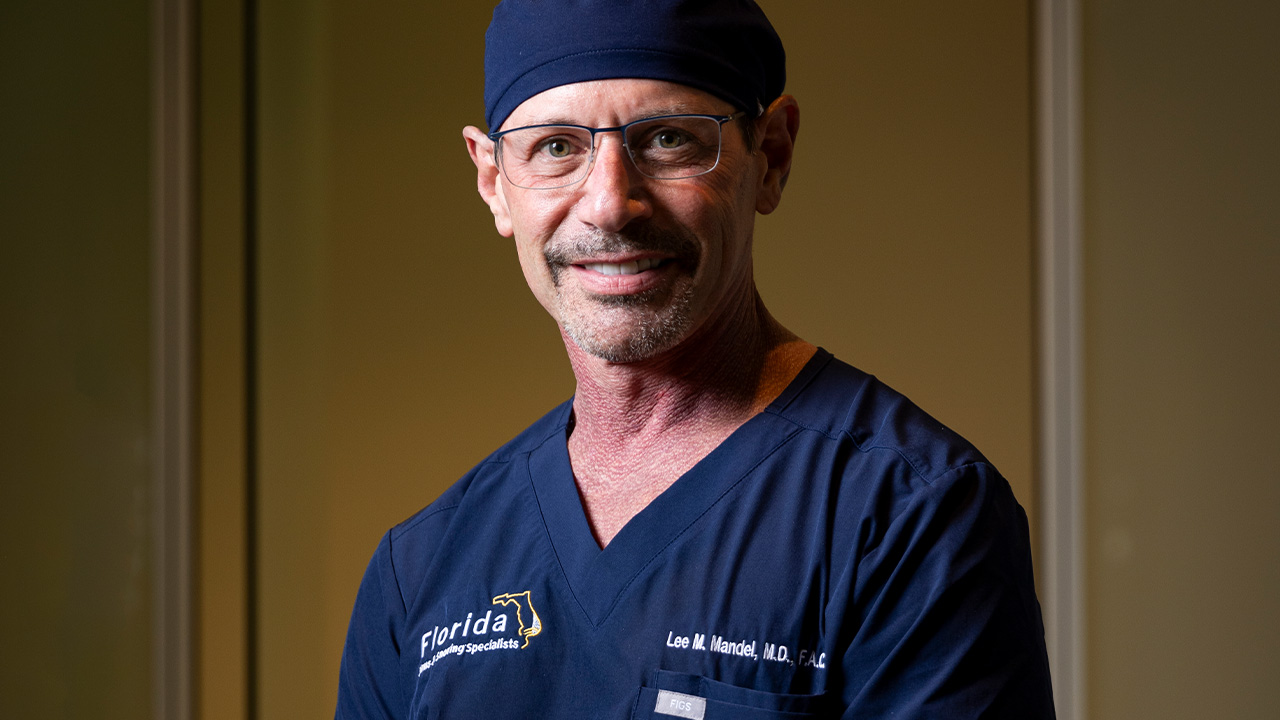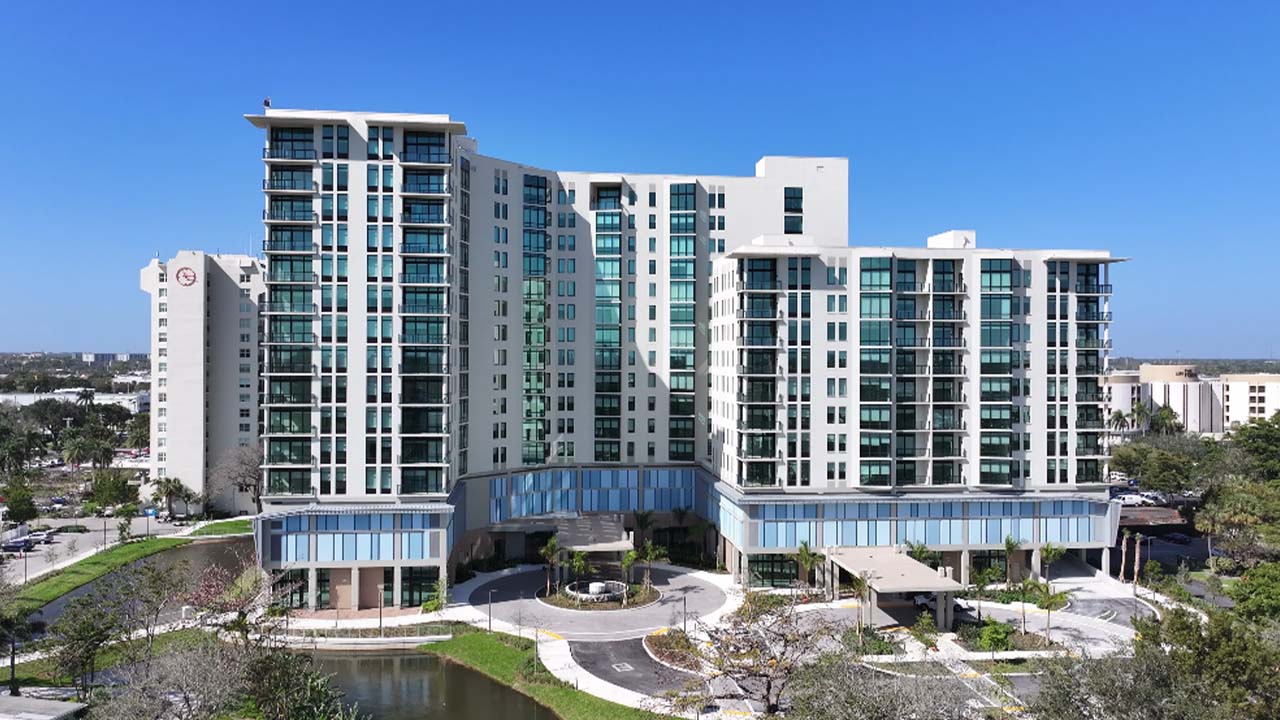South Florida is making strides in new procedures and practices
By Martin Lenkowsky
A visit to a doctor’s office, hospital or any medical facility today might no longer resemble what it was like a few years ago. Advances in medical technology allow more targeted treatments for many procedures, resulting in less damage to otherwise healthy organs and tissues.
To begin a new series, SFBW looks at some of the innovations in South Florida medicine.
Stem cell therapy
“Cell therapy will be used for just about everything,” says physician Joshua Hare, director of the University of Miami’s Interdisciplinary Stem Cell Institute. “Any disease will have a stem cell therapy.”

Hare says the institute is running about 20 active research trials with patients. “Our focus is on cardiac disease,” says Hare, a cardiologist. “We’re working on therapies for diseases, including congestive heart failure, pulmonary fibrosis and aging frailty.”
Stem cells could be a valuable tool in treating a heart attack patient. “A heart attack causes permanent injury,” the doctor explains. “Scar tissue is replacing muscle that should be beating, but it’s not. If we inject stem cells into the scar tissue, it will produce newly beating muscle.”
The same type of treatment could be useful in people who have Alzheimer’s or have had a stroke, he says. “The idea is if it works in the heart, we think it works in the brain.”
The cardiac stem cell clinical trial is in its final phase. “This might be one of the first products approved by the FDA that will be used to regenerate tissue in people who have heart failure,” he says.
U.S. Stem Cell of Sunrise is building a multifaceted business in the field. It has developed a clinical protocol and kit, called AdipoCell, that isolates a patient’s stem cells for healing purposes. It reports it has also trained 700 physicians. The company has walk-in clinics in Sunrise, Miami and Palm Beach. “It’s for people looking for alternative types of therapies,” says physician Kristin Comella, the company’s chief science officer.
Comella says stem cell therapy, which uses adult stem cells, has many advantages to standard forms of medical treatment such as surgery. “It’s all done with local numbing,” she says.
Stem cell therapy is used to treat degenerative arthritis of the knee and other orthopedic impairments. “Quite a few studies have shown increased ranges of motion,” she says.
Stem cell therapy can be used as an anti-aging therapy. Comella says she injects stem cells every six to 12 months.
Progress in cancer treatments, diagnostics
Baptist Health’s Miami Cancer Institute is the first in the region to offer an advanced form of radiation treatment called proton therapy to treat tumors. Physician Minesh Mehta, deputy director and chief of radiation oncology at the institute, says proton therapy targets tumors to reduce exposure to healthy body tissue.




The type of cancer, along with its location, will determine whether a patient would be a candidate for proton therapy. In some clinical situations, proton therapy might have significant benefits for patients with breast cancer, Mehta says.
For men undergoing radiation treatment for prostate cancer, Baptist’s institute offers SpaceOar Hydrogel. The gel, which is inserted in a 20-minute, outpatient procedure, provides a buffer between the rectum and prostate, which reduces the risk of exposing the rectum to radiation and allows higher radiation doses.
“The procedure is 99 percent effective in creating space between the prostate and the rectum,” says physician Marcio Fagundes, medical director of radiation oncology.
Boca Raton Regional Hospital’s Eugene M. and Christine E. Lynn Cancer Institute has added the CyberKnife to its arsenal of high-tech weapons to fight cancer. Unlike other forms of radiosurgery, the CyberKnife continuously tracks and attacks the tumor as it shifts during therapy because of patient movement or respiration.
“It’s for all types of tumors,” says Michael Kasper, a radiation oncologist at the hospital, “But they have to be small, usually five centimeters or less.”
The process does not require general anesthesia and is done on an outpatient basis. No recovery time is needed. It’s most often used for treating tumors of the prostate, lung, brain, spine, liver, pancreas, kidney, bone and eye. “For the prostate, we typically give 45 treatments. With the CyberKnife, it’s just five treatments for one week,” he says.
Miami-based physician George Suarez is using high-intensity focused ultrasound in an outpatient procedure to combat prostate cancer without surgery, chemotherapy or radiation. It reduces the risk of side effects, including impotence, from 80 percent down to 2 percent versus traditional treatments.
Boca Raton Regional Hospital’s Christine E. Lynn Women’s Health & Wellness Institute has added a new type of mammogram machine, Senographe Pristina. Pristina arrived last March, says Dr. Kathy Schilling, the institute’s medical director, and has gotten rave reviews from women who find it more comfortable than traditional scanning devices. “A patient is empowered to control her own compression,” says Schilling, who was the first at the hospital to use it.
Pristina can perform 2-D and 3-D imaging for women with dense breasts, Schilling says. The hospital has added a second unit in Boca Raton and a third in Deerfield Beach. A mobile van will have another in May.
Memorial Healthcare Systems has started a partnership with Moffitt Cancer Center, one of the nation’s top treatment facilities. Moffitt Malignant Hematology & Cellular Therapy at Memorial West in Pembroke Pines offers a comprehensive blood and marrow transplant and cellular therapy program. The alliance also brings the Tampa-based cancer center’s access to research, clinical trials and model of care to local leukemia, lymphoma, and multiple myeloma patients.
Boca Raton’s Sensus Healthcare is offering superficial radiation therapy to help reduce some of the side effects of nonmelanoma skin cancer and keloids. The therapy uses precise calibrated doses of radiation. SRT has a success rate exceeding 95 percent, says CEO and founder Joe Sardano. “There are no side effects at all.” It can be an alternative to skin surgery, which can result in difficult-to-control bleeding on older people or those with diabetes or on blood thinners, and also is highly effective in treating keloids, which form on old scar tissue.
Robotic surgery grows
Not long ago, it would’ve been something you’d see in a science fiction movie, but not anymore. More and more hospitals are using robots to perform surgical procedures, says physician Dipen Parekh, the University of Miami Medical Center’s director of robotic surgery, chief clinical officer and urology department chairman.
Parekh says robotic devices offer distinct advantages. “It allows you to do some operations with decreased loss of blood and less need for a transfusion,” he says. “It allows the patient to resume normal activities much sooner than with traditional surgery.”
Procedures include bladder, colorectal, thoracic and gynecological treatments, he says. Surgeons have a clear 3-D view during surgery while working the controls, but the machine does the cutting. “The doctor has more range of motion, especially in difficult to reach areas,” Parekh says. “It’s also ergonomically easier for the surgeon. It’s more direct and precise.”
Chronic fatigue syndrome
Physician Nancy Klimas, chair of Nova Southeastern University’s Department of Clinical Immunology, is heading the research to cure chronic fatigue system, which causes both brain and muscle inflammation. Its symptoms are profound pain and fatigue exacerbated by even the slightest exertion. Like many inflammatory diseases, women are affected more often than men, Klimas says.
Klimas and co-researcher Mary Ann Fletcher began studying the condition in 1989. They are seeking a cure by running “hundreds, even thousands” of virtual clinical trials, looking for the right combination of targeted treatments in the right order, essentially to “reboot” the body’s own equilibrium.
Fighting drug abuse
Researcher Hossein Omidian and his team at NSU are developing deterrent technologies to prevent drug abuse by snorting, injecting and oral ingestion. Omidian, a professor in the university’s College of Pharmacy, says: “Since abusers do not follow standard protocol and use a wide range of unconventional methods to abuse opioids, no single technology can promise full deterrence to abuse. We strategically designed technologies that can effectively and safely be used in developing both immediate and sustained-release opioid formulations with effective abuse deterrent properties.”
By changing the formulas in opioid drugs, these drugs cannot be altered by addicts.
Gains in neuroscience
Holy Cross Hospital opened the Phil Smith Neuroscience Institute, which is the first to offer specialized care for Lou Gehrig’s disease—amyotrophic lateral sclerosis—patients in Broward and Palm Beach counties. The center also offers comprehensive neurological and neurosurgical care for a variety of conditions.

The center is named after the late president and CEO of the Phil Smith Automotive Group. He donated $7 million toward state-of-the-art neurological care at the nonprofit hospital.
Patients have access to research and clinical trials and treatments through an expanded relationship with Massachusetts General Hospital, the largest teaching hospital of Harvard Medical School. There are more than 15 neurophysician specialists.
Exercise for the brain
We need to do more than just give our bodies a workout to get stronger and leaner, says Mark Murrison, CEO of Neurocore Brain Performance Centers. He calls his company “a gym for the brain.”

Neurocore, which has a headquarters and six locations in Michigan, has opened centers in Boca Raton and Palm Beach Gardens. Murrison says Neurocore’s primary focus is to identify—and relieve—problems with brain function, including attention deficit hyperactivity disorder, sleep disorders, anxiety, depression, migraine headaches and memory issues.
The first step at Neurocore is a two-hour assessment that includes a checklist of one’s behavior, and an interview with a clinical specialist. Neurocore also performs a sleep assessment and a cognitive process and performance evaluation.
The next step is called qEEG—quantitative electroencephalography—which is essentially brain mapping. “It measures the electrical activity of one’s brain like an EKG [electrocardiogram] measures a heart’s electrical activity,” Murrison explains. Brain mapping identifies areas of the brain that might not be functioning properly. A neurofeedback program then improves and strengthens one’s brain. Neurocore also stresses proper deep diaphragmatic breathing as well as proper diet and exercise regimens.
Concierge medicine grows
Sick and tired of feeling lousy, and then finding out your family doctor has no appointments open for a few days? MD Live might be what you need.


The company offers a convenient way to visit with various medical specialists online or by telephone to receive real-time, live medical treatment, says Randy Parker, who founded it in 2009. Medical professionals can treat more than 50 symptoms, including colds, the flu, skin problems, stomach issues and depression.
Patients start by providing a medical history that is reviewed by a board-certified physician. “Our average wait time is less than 10 minutes. We have 25 million members,” says Parker, who is the chief business development officer and chief marketing officer.

Cleveland Clinic Florida also has started a concierge medicine program in the Fort Lauderdale area. Members receive comprehensive and coordinated care, same-day or next-day appointments, minimized wait times, extended appointments with a personal physician, and direct physician communication 24/7, the clinic says. That includes support and coordination of care for medical emergencies when traveling.
The concierge program is based at 1301 E. Broward Blvd, Suite 205, and led by board-certified internist Nabil Tadross.
Shockwave treatment for ED
An FDA-approved clinical research trial at the University of Miami Health System, using shockwave treatment for erectile dysfunction, has shown positive results. This is the first clinical trial of its kind in the United States, and more than 30 patients have participated. More volunteers are being sought.

Shockwave therapy uses energy from acoustic waves to trigger a process called neovascularization—formation of new blood vessels—in certain parts of the body. For men, blood flow is critical to achieve an erection.
The trial is led by physician Ranjit Ramasamy.
Gifts boost Jupiter Medical Center
A $5 million gift from an anonymous donor will help Jupiter Medical Center become a designated comprehensive stroke center, the Jupiter Medical Center Foundation says. While the hospital has been a “primary” center since 2008, Palm Beach County Fire Rescue transports stroke patients only to facilities with “comprehensive” designation.

The foundation also announced a $5 million gift from retired Sprint Nextel executive Tim Donahue and his wife, Jayne, that will help the hospital provide open-heart surgery by this fall. Since 2015, the hospital has forged a clinical partnership with Mount Sinai Heart New York and added two interventional cardiac catheterization labs for procedures such as balloon angioplasty and coronary stents. Jupiter Medical Center soon will be able to perform more advanced cardiac procedures, including cardiac bypass, valve replacement and open-heart surgery.
A dental office in tune with nature
Think a dentist’s office needs to be a dull, cold place? Think again. Spodak Dental Group in Delray Beach has gone to great lengths to make its entire building comfortable and healthy. Nearly every room has natural lighting and views of the exterior gardens and landscape. Tubular skylights direct natural illumination into rooms without windows. Its building has received gold status from the U.S. Green Building Council, which rates facilities based on their energy and environmental designs.
Quality home health care
Luis Mejer, president and administrator for 24/7 Nursing Care, esays he looks for the best possible match for patient needs when he dispatches caregivers. “We go to interview the patient and their family members,” he says. “We take down notes and then we go through our database to look for someone with that type of experience.”
For an Alzheimer’s patient, for example, Mejer’s company will look for a caregiver with extensive experience dealing with the disease. Mejer says his caregivers can use iPad memory games to help patients and are familiar with working with sundown syndrome.
It provides home health care services for up to 24 hours a day. “We do private, long-term care, from skilled nursing to someone needing a companion,” Mejer says. “We are not paid by health insurance—only cash or long-term insurance.” ♦
















